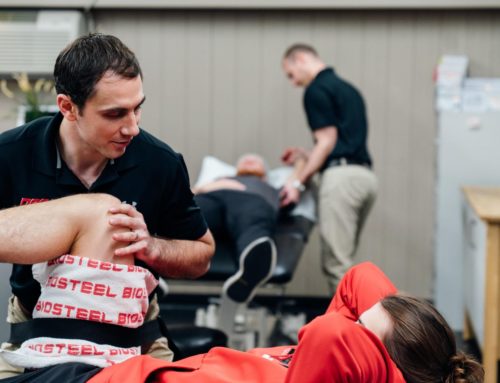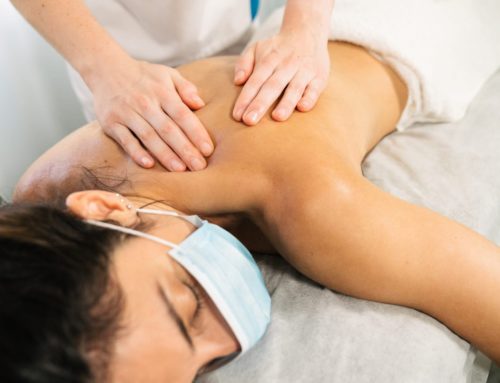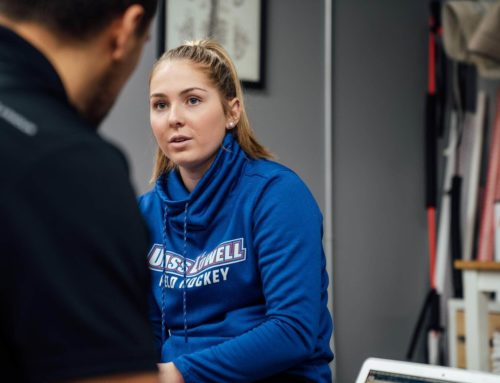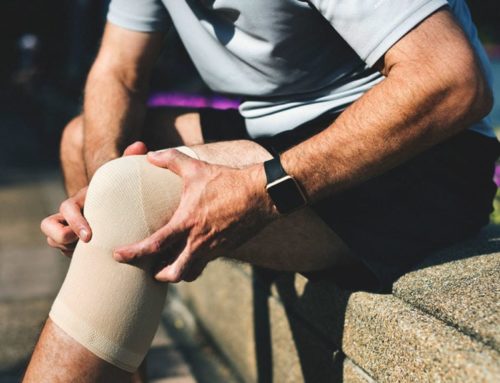With the new year approaching, we have the opportunity to reflect on our accomplishments and determine our target achievements for the upcoming year. For many young athletes, the goals are simple: Get faster. Get stronger. Get bigger. Get better. As motivated as we are to achieve this, we have had the same goals and dispositions for years on end. Many good athletes become great, but the jump from a great athlete to an elite one is significantly more challenging. TO BECOME ELITE, IT INVOLVES A CHANGE IN YOUR MENTAL MINDSET. Many of the world’s elite, including athletes, business professionals, researchers and global leaders may differ physically from one another, yet they share incredibly similar personality traits that make them successful, regardless of their chosen field. Research has demonstrated that there are seven common characteristics that elite individuals share, including, commitment, focused connection, confidence, positive images, mental readiness, ongoing learning, and distraction control.
Commitment
Commitment can easily be considered the most important mental performance trait that elite individuals share. Commitment is not just practicing your skills every day, it is about committing to doing everything required to excel. Commitment is about becoming the best you can be, and persisting through the lowest points of adversity, learning through every setback, and finding joy in the pursuit to greatness every day. In order to excel in our commitment, we need to be fully engaged throughout our entire performance, and always have a clear vision in our mind of our outcome goal. Although we are consistently faced with adversity, it is the combination of persistence, and perspective that will allow the mind to overcome anything. Here are some questions to think about regarding your commitment as we head into a new year:
- Are your goals challenging, clear, and most importantly, enjoyable?
- Are you committed to high quality training, to improving, and doing something every day that will lead you closer to your goals?
Focused Connection
A focused connection involves being totally submerged in the experience. As you are playing and training, your ability to maintain your focus on the task at hand is unparalleled. It can also be said that an improved sense of focus leads to stronger performance consistency. If we were to look at many of the champions in various sports such as Usain Bolt, Roger Federer, and Michael Phelps to name a few, it can easily be stated that their performances are consistent regardless of their external surroundings. Elite athletes have the ability to maintain a present-minded focus where the only thing that is on their mind is the task at hand. It is incredibly important to be able to free yourself from the external surroundings in order to develop a positive and absorbed focus that is directed towards your present actions. Your mental focus leads the rest of your body, and it is instrumental to remain positively engaged at all times. Here are some questions to help develop your focus:
- Do you have a plan to stay consistently focused throughout your game or practice?
- Do you have a good understanding of what kind of focus it takes for you to succeed?
- Do you know how to quickly regain your focus, if it is ever lost during competition?
Confidence
The ability to believe in your potential to overcome barriers is critically important to your personal success. According to Orlick (2000), confidence comes from a commitment to preparation. This is established by a highly developed routine of positive self-talk, and looking at past experiences as learning lessons rather than obstacles. As we have continually seen throughout our own personal performances, confidence usually wavers as a result of negative experiences or thought patterns, not because of our capabilities. Elite athletes are very similar to us in regards to feelings of nervousness and insecurities, however it is the ability to recall from previous successes in training that enable these athletes to overcome adversity and succeed in their current performance. There are two very basic things to remember when it comes to confidence according to Dr. Terry Orlick:
- There is always someone who believes in you
- Through times of doubt, always act as though you can do it.
Here are some questions to ask yourself in regards to your own personal confidence:
- Are you putting yourself in positive situations that will help you achieve your goals?
- Are you continually looking for good things in your performance?
- Do you believe in your ability to reach your dreams?
Positive Images
Elite athletes have excellent imagery skills that enable them to engage intellectually, emotionally, and kinesthetically in their sport without physically doing it. Positive imagery is consistently incorporated into their training regimes, which allows them to be prepared for intense competition and adversity. Positive imagery is the key to resiliency in sport. It is the ability to imagine yourself making that game changing shot, or the save that holds the team in the game during the final seconds of regulation play. Positive imagery is an essential component of developing confidence, and can help you execute at a higher skill level without physically practicing it. Elite athletes are able to consistently imagine themselves as competent, confident, and successful during performance situations, and use this technique as a way to prepare and practice for a wide variety of circumstances. As a result, this will also help to deliver a higher level of consistency over the course of a season.
- Can you imagine yourself performing exactly how you would like to?
- Can you imagine the small details within each movement necessary to perform each skill?
- Are you imagining yourself accomplishing the small tasks every day when you wake up?
Mental Readiness
Every competitive athlete is motivated to win. It’s been drilled into us along with the combination of having fun in what we do. However it takes more than motivation to win, it takes quality mental preparation prior to every performance and practice to become an elite athlete. Mental readiness involves learning how to take advantage of performance opportunities, developing your competitive awareness, and a task-oriented disposition every time you compete. A clear example of mental readiness is an athlete’s ability to overcome the raw emotions of a game, in order to commit to their game plan. By eliminating raw emotions, elite athletes are able to focus on evaluating the present play and making the logical decisions necessary for immediate success. Within a time frame of seconds, athletes need to be able to evaluate the opposition, their team, and their own physical condition prior to committing to their next move. These kinds of situations exemplify the importance of mental preparation, and elite athletes ensure they are just as prepared mentally before a game as they are physically. Here’s how you can help develop your mental readiness:
- Are you remaining open to the various scenarios that can happen during a game?
- Are you looking for the potential opportunities that could bring you success every time you compete?
- Are you willing to win the small battles to gain the outcome you demand?
Distraction Control
Within every practice and every game we are faced with external and internal distractors that can take us away from the task at hand. Elite athletes have the ability to perform consistently and stick to their own game plan regardless of the circumstances surrounding them. When adversity arises, elite individuals develop the ability to quickly regain a positive perspective on their abilities, as well as reflect on what is necessary to get them back on track. Many elite athletes use cue words, or positive self-talk routines that can be said in a few seconds, which enable them to focus on what they can presently control. This type of positive performance routine enables an athlete to quickly regain an effective focus level, and reconnect with the task at hand.
- How do you handle distractions in your game
- Are you turning negative experiences into positive opportunities?
- Are you consistently using your distraction control strategies instead of acting on emotion?
Ongoing Learning
One of the largest differences between average and elite individuals is the way in which they learn. Adversity can affect you negatively, or you can find a way to learn from it. Ongoing learning is the ability to draw out important lessons from each performance. This does not just reflect on physical qualities to performance such as work ethic, endurance, or strength; it is about engaging your mind to determine how your performance was affected by your mental readiness, commitment, and focus. Elite athletes are able to self-reflect and dissect their game at specific points in time to determine areas for change to continually improve or implement in their next performance. Not only are elite individuals able to look at their performance in broken down segments, they are also able to gain inspiration and confidence from this process. As a result, ongoing learning helps athletes to maintain a higher level of commitment and enjoyment in what they do. This process can be broken down into three basic steps:
- Reflection on what went well
- Target areas for continued improvement
- Act on it.
- Are you looking for the positives in your performances?
- Are you reflecting on both your mental readiness as well as your physical performance?
It’s time to be your best. Whether it’s in sport, school, work, or life, it’s time to make a difference and pursue excellence. Pursue your dreams and remember that with confidence and commitment comes success. No hill is too high to climb, and no win comes without learning! Be strong, be confident, and believe.
Written by: Will Sibley, Former Mental Performance Coach at Depth Training, Owner of Control the Crease Goaltending, Hockey Operations & Analyst for the Toronto Marlies






